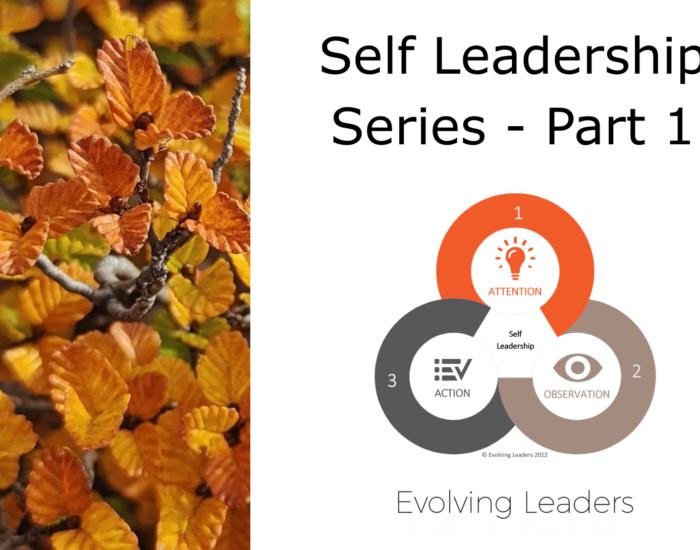Making reflective practice a reality – no matter how busy you are!
The previous post outlined why reflective practice is a leadership super power and surfaced some of the richness that reflection brings. This post explores three of the barriers to creating space and time to reflect and provides you with a structure to get started.
My previous blog post explored why reflective practice is a leadership super power and surfaced some of the benefits and insights that reflection helps us with. In this post I want to explore three of the internal barriers to getting started and provide you with a framework and some great questions to inspire you to do it anyway!
The reality is that reflective practice is something most people, including most leaders, have never done. We live in a society, and certainly in workplaces, in which ‘doing’ and ‘tasks’ are what are valued and creating space to reflect and learn is far from the reality.
Three main barriers to reflective practice
There are three main barriers that get in the way of us creating space and therefore creating the environment to reflect:
- We don’t schedule it/plan for it/turn up for it
- We don’t value it – ‘Why would I bother doing that?’
- We think that what it might show up for us feels too daunting and scary – so it is safer/better not to do it at all
Let’s explore these:
- We don’t schedule it/plan for it/turn up for it
In my earlier ‘Five keys to creating conscious change and restoring wellbeing’ post, I introduced the 5S leadership self-care model. The first S in this model talks about making ‘space’ – carving out space – which means scheduling it into your calendar and creating the conditions to support that schedule (such as finding the best environment for you to be able to bring your full focus to the intended activity: reflection).
Even if you do schedule time for reflective practice, it can be all too easily get ‘bumped’ for something more ‘important’ that appears on your to-do list. The biggest tip I can offer here is schedule it and show up fully for yourself – no excuses. Treat it as you would a meeting with your boss or a client.
2. We don’t value it – ‘Why would I bother doing that?
If we don’t understand the benefits of a new practice, we won’t value it. My hope is that if this is new for you, that some of what has been explored in the previous post will help you to at least feel tempted to give it a go. Perhaps ask around and connect with another leader who you know does use reflective practice and ask them personally about why they do it and how they go about doing it.
3. We think that what it might show up for us feels too daunting and scary – so it is safer/better not to do it at all
In a crazy-busy life, we often have a backlog of things we need to process and make sense of. If this is the case for you, then carving out space can feel quite daunting and even scary. Why?
Because sometimes we keep ourselves so busy because that means we don’t have to look at and face up to what is really happening and true for us. If we don’t look towards this stuff and keep running from it, then we don’t need to have that honest conversation with ourselves or another, and we won’t need to make a choice or decision that may mean change. Right?
This can be a sensible and even worthy strategy in the short term, depending on life circumstances. However, in the medium to longer term it will catch up with us. If we keep ‘shying away’ from what we know is true for us and pretending that everything is okay – if we don’t start to face up to what is really true for us – we can begin to compromise the very core of our being. That doesn’t serve you, the situation or anybody else.
Can you relate to any of the above? What is standing in the way of you reflecting?
Getting started with reflective practice
Here is a framework that might help to get you started:
- Schedule it
- Show up for it
- Structure it
Option 1
- Recall and review: identify a recent situation/event/conversation/feeling/trigger that you want to explore. Capture the key points you recall, replay the conversation in your head and/or begin the process of a written journal.
- What are the key learnings?
- What did you notice?
- What did you say?
- How did you feel?
- What were you most proud of?
- What were you not so proud of?
- What do you now understand about yourself?
- What do you now understand about the situation?
- Set direction with what you now understand about yourself. The situation, the other person, etc. What will you do differently next time? What is your intention and course of action from here?
Option 2
Thinking about the past week or month, ask yourself the following questions:
- What am I most proud of?
- When have I felt triggered by a particular situation or event?
- What made me feel that way?
- What can I observe/learn about myself in this situation?
- What action do I need to take from here (if any?)
Leaders who thrive are those who care enough about themselves and those they lead to do this – to look in their own backyard and do their own self-work.
Still feeling too tough? You don’t have to go it alone. A good way to start might be to get yourself a leadership coach who can ‘hold the space’ for you so you can begin a gentle journey inwards.
I also recommend the host of resources referred to in my ‘Five keys to creating conscious change and restoring wellbeing’ post. Perhaps you simply feel ready to grab a notebook and get started?
To reiterate the closing words in my last post:
One of the greatest leadership/life challenges is knowing who we are and what matters to us at our core AND not letting the busyness of life and a multitude of external distractions pull us away from that.
One thing is guaranteed: unless you deliberately and regularly carve out space to engage in reflective practice and take a balcony perspective, life will pull you off course from your centre – from who you are and what matters to you.
If you do build a reflective practice into your rhythm in life, the conversations might be tougher but the outcomes will also be richer.
The choice is yours. What do you choose?





